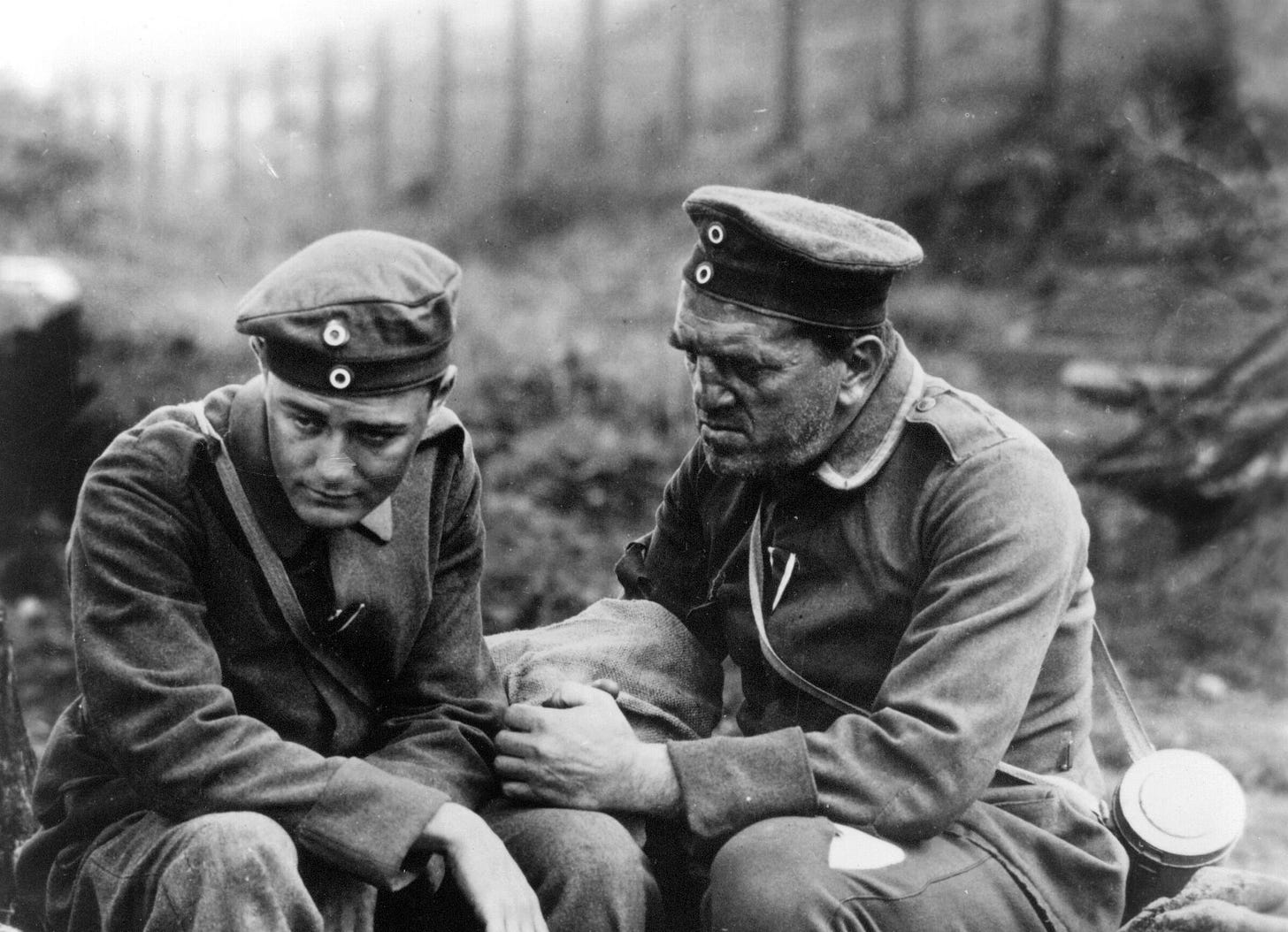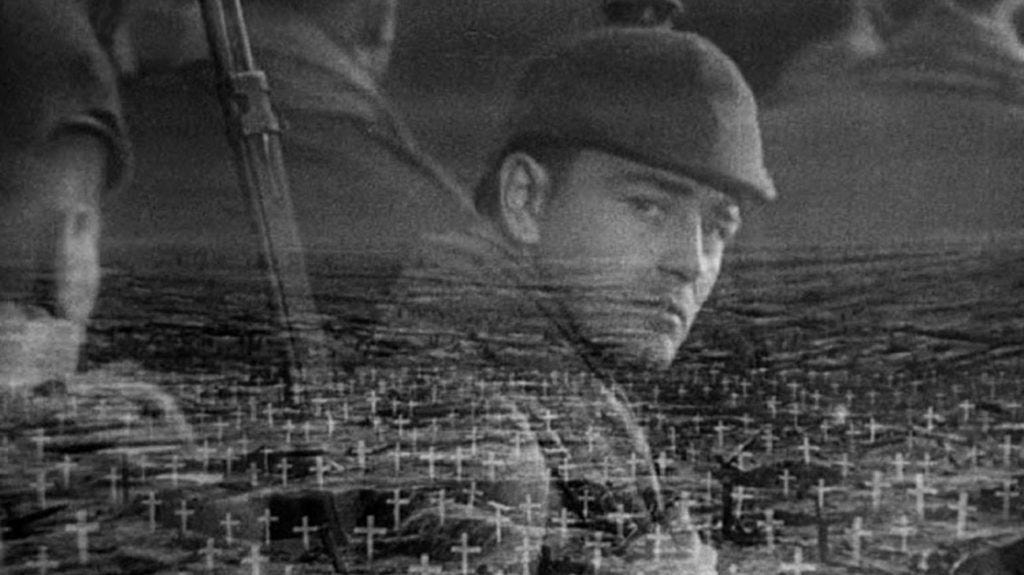All Quiet on the Western Front (1930)
A revolutionary testimony that showed the ugly face of modern warfare
Last year, on a long flight from Texas to California, my dad handed me a small, yellow-paged book with the familiar musty smell that signified good literature and challenged me to finish it before we landed. This is how I was introduced to the haunting, powerful, and masterfully written classic that is All Quiet on the Western Front, an incredibly tragic story that was transferred perfectly into a 1930 cinematic version that changed Hollywood forever.
All Quiet on the Western Front follows Paul Bäumer, a young German man who, along with his entire class, joins the Army during the first world war after being spurred on by the patriotic speeches of their teacher, Kantorek. Soon after arriving on the front, the youth begin to realize war is not what they thought it was. Around this time, Paul meets Kat, an older and experienced soldier who has been on the front from the beginning. They become friends and immediately Paul looks up to Kat as his mentor. Over the course of the book, Paul loses friend after friend until the shocking and tragic climax.
The author, Erich Maria Remarque, a WWI veteran, wrote the book based on his own terrible experiences and memories of serving in Flanders. Although his work was universally acclaimed when he published the novel in 1929, in later years Remarque was hunted by the Nazis as a coward and unpatriotic citizen until he left Germany. During the 1930s he moved to the United States and then to Switzerland, publishing many other works from his home until his death in 1970 at the age of 72.
Only a year after Remarque published the book, a magnificent film adaptation was made. Unlike war films of the time that promoted war and portrayed the Germans as “Huns” and the Allies as heroes, this film showed men as men, German and French, locked in gritty combat over tiny expanses of land, creating the genre of “Anti-war films”. It showed young boys afraid of loud, bursting shells, men cut down in droves by machine-guns, and beloved characters suddenly taken out by hidden snipers, all with realistic gear and sounds, as many actual First World War veterans acted as extras and assisted in direction. Besides being incredibly accurate and realistic for a film of its time, All Quiet also has a magnificent score and cast who’s acting is something straight out of the golden age of Hollywood.
I highly recommend both the book and the film, but of course, read the book first.
As well as being the first film to portray war in a negative way, All Quiet on the Western Front gave sympathy to the nation of Germany after its massive defeat in the first world war. Over 2 million Germans died as their country was beaten into the ground by the US, the UK and dozens of other countries. The controversial Treaty of Versailles stripped Germany of its honor and military splendor, installing a deep sense of hate for the Allies in the people of Germany that would be sparked and kindled by yet another broken and twisted German twenty years later.
Out of all the humanity both the film and the book gives to soldiers, the most terrible part is in the book, when Paul returns from the front for a short time to see his family. He is confronted by the stillness and familiarness of his hometown, not needing to hide and duck and fight and kill, and is shocked to find that he no longer belongs in his old home, as to him it is now a foreign world. He feels removed and disconnected from all the common people who know nothing of war. His father questions him about his combat experience, pressures him to talk about the front line, but Paul simply states that “a man cannot talk of such things.” Even his old teacher, who roused him with love for his country and filled him with wonder and excitement to go and fight, tells Paul that he knows only a little part of the war and not the overall picture of strategy and glory.
Paul returns back to the front and his old friends, where they enjoy temporary victories and time together, but as the war draws to a close, he loses interest in life and fears for his generation of men, fears that they will be misunderstood, misrepresented and forgotten.







Thats very interesting. I almost read this book awhile back but I never ended up picking it up. Would you say you are in agreement with the authors message?
You should really read it sometime. It's not long and there's alot to think about. He's really a criminally underrated writer.